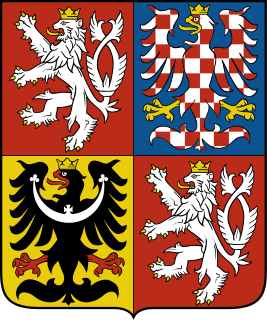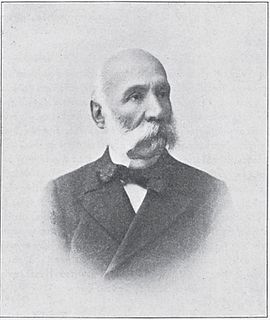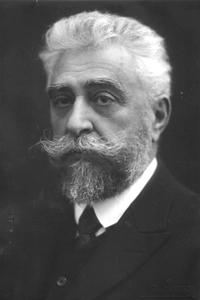
Parliamentary elections were held in Greece on 11 December [O.S. 28 November] 1910, following elections in August. The Liberal Party won 307 of the 362 seats. Eleftherios Venizelos remained Prime Minister, having assumed office on 18 October.

Parliamentary elections were held in Greece on 25 September 1932. All 254 seats in the Lower House of the Greek Parliament, the Vouli, were elected, as well as one-third of the seats in the Senate. The outcome was an ambivalent result for the two biggest parties, the Liberal Party of Eleftherios Venizelos and the People's Party. The People's Party received a plurality of votes in the Lower House elections, but won fewer seats than the Liberal Party. The Liberals also won the most seats in the Senate.

Parliamentary elections were held in Poland on 8 September 1935, with Senate elections held a week later on 15 September. They were held under the April Constitution, drawn up earlier in 1935 by the Sanation movement, which structured the election rules in its favor. In protest, the election was boycotted by opposition factions, and voter turnout was only 45.9%, the lowest in the history of the Second Republic.

General elections were held in Belgium on 1 June 1958. The result was a victory for the Christian Social Party, which won 104 of the 212 seats in the Chamber of Representatives and 53 of the 106 seats in the Senate. Voter turnout was 93.6% in the Chamber election and 93.7% in the Senate election. Elections for the nine provincial councils were also held.

General elections were held in Belgium on 26 March 1961. The result was a victory for the Christian Social Party, which won 96 of the 212 seats in the Chamber of Representatives and 47 of the 106 seats in the Senate. Voter turnout was 92.3%. Elections for the nine provincial councils were also held.

General elections were held in Belgium on 17 April 1977. The result was a victory for the Christian People's Party, which won 56 of the 212 seats in the Chamber of Representatives and 28 of the 106 seats in the Senate. Voter turnout was 95.1%. Elections were also held for the nine provincial councils and for the Council of the German Cultural Community.

General elections were held in Belgium on 8 November 1981. Voter turnout was 94.5% in the Chamber election and 94.6% in the Senate election. Elections were also held for the nine provincial councils and for the Council of the German Cultural Community. They were the first elections after the voting age was lowered from 21 to 18. This contributed to the success of the socialist parties and the green parties. The traditionally largest Christian People's Party saw significant losses, with only 43 of the 212 seats in the Chamber of Representatives.

General elections were held in Belgium on 16 November 1919. Although the Belgian Labour Party received the most votes in the Chamber of Representatives elections, the Catholic Party remained the largest party in both the Chamber and the Senate. Voter turnout was 88.5% in the Chamber elections.

General elections were held in Belgium on 20 November 1921. The result was a victory for the Catholic Party, which won 70 of the 186 seats in the Chamber of Representatives. Voter turnout was 91.1% in the Chamber election and 91.0% in the Senate election.

General elections were held in Belgium on 5 April 1925. The result was a victory for the Belgian Labour Party, which won 78 of the 187 seats in the Chamber of Representatives. Voter turnout was 92.8% in the Chamber election and 92.7% in the Senate election.

Senate elections for a third of chamber were held in the Czech Republic on 13 and 14 November 1998 with a second round on 20 and 21 November.

Parliamentary elections were held in Greece on 7 February 1899. Although Charilaos Trikoupis died in 1896, his supporters emerged as the largest bloc in Parliament, with 110 of the 235 seats, Georgios Theotokis, his successor as a leader of the New Party became Prime Minister after the election.

Parliamentary elections were held in Greece on 20 February 1905. Supporters of Theodoros Deligiannis emerged as the largest bloc in Parliament, with 144 of the 235 seats. Deligiannis remained Prime Minister after the election, but died on 13 June and was succeeded by Dimitrios Rallis.

Parliamentary elections were held in Greece on 21 August [O.S. 8 August] 1910. The United Parties won 211 of the 362 seats. Eleftherios Venizelos became Prime Minister on 18 October, and early elections were held in November.

General elections were held in Portugal on 28 April 1918, following a coup by Sidónio Pais in December 1917. The elections were boycotted by the Democratic Party, the Evolutionist Party and the Republican Union, who had won over 90% of the seats in the 1915 elections.

Parliamentary elections were held in Portugal on 11 May 1919. The three main parties that boycotted the 1918 elections returned to contest the elections. The result was a victory for the Democratic Party, which won 86 of the 163 seats in the House of Representatives and 36 of the 71 seats in the Senate.

Parliamentary elections were held in Portugal on 8 November 1925. The result was a victory for the Democratic Party, which won 83 of the 163 seats in the Chamber of Deputies and 39 of the 70 seats in the Senate. With a military coup the following year and the subsequent Estado Novo period, they were the last truly multi-party elections in the country until the 1975 Constituent Assembly election.

General elections were held in Romania between 1 and 3 March 1922. In the first stage between 1 and 3 March, seats in the Senate were elected. In the second stage between 5 and 7 March the Chamber of Deputies was elected, and in the third and final stage from 9 to 11 March, additional Senate seats were elected. The result was a victory for the governing National Liberal Party, which won 222 of the 372 seats in the Chamber of Deputies and 111 of the 148 seats in the Senate.

General elections were held in Romania in June 1939. The Chamber of Deputies was elected on 1 June, whilst the Senate was elected a day later. They were the first since the introduction of the royal dictatorship of King Carol II under the 1938 constitution. Voters were presented with a single list from the National Renaissance Front, which had been the only legally permitted party in Romania since December.
The Progressive Party was a political party in Greece in the 1920s and 1930s led by Georgios Kafantaris.


















